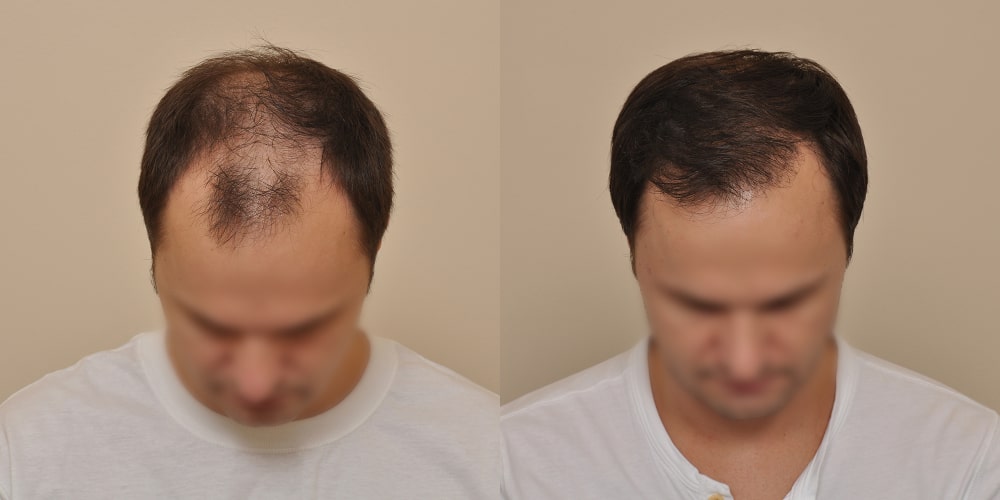1. Introduction
Hair Transplant procedures have become increasingly popular in recent years as a permanent solution to hair loss. Whether it's due to genetics, aging, or medical conditions, hair loss can significantly impact an individual's quality of life. A successful hair transplant can restore not only the lost hair but also one's confidence and self-image.
2. Choosing the Right Surgeon
One of the most critical factors in ensuring a successful hair transplant is selecting the right surgeon. It's essential to research and choose a qualified and experienced surgeon who specializes in hair restoration. Look for certifications, credentials, and testimonials from previous patients to ensure you're in capable hands.
3. Understanding the Procedure
Before undergoing a hair transplant, it's crucial to understand the procedure and what to expect. Different techniques, such as follicular unit transplantation (FUT) or follicular unit extraction (FUE), may be used depending on your specific needs. During the consultation process, discuss your goals and expectations with the surgeon to ensure they align with what's achievable.
4. Pre-Transplant Preparation
Preparing for a hair transplant involves following the surgeon's pre-operative instructions carefully. This may include avoiding certain medications or lifestyle habits that could interfere with the procedure's success. Additionally, managing expectations about the results is essential, as hair transplant outcomes may vary from person to person.
5. During the Transplant
On the day of the procedure, it's normal to feel some nervousness or anxiety. However, maintaining open communication with the surgical team can help alleviate any concerns. Relaxation techniques, such as deep breathing or listening to calming music, can also help keep stress levels in check during the procedure.
6. Post-Transplant Care
Following the transplant, diligent post-operative care is crucial for a successful outcome. This may include gently washing the scalp, avoiding strenuous activities, and taking prescribed medications to reduce swelling and discomfort. Protecting the transplanted area from sun exposure and injury is also essential during the initial healing period.
7. Recovery and Patience
Hair transplant results take time to become apparent, as the transplanted hair follicles need to establish blood supply and begin growing. Understanding the hair growth cycle and having realistic expectations for the timeline of results is key. It's essential to be patient during the recovery process and avoid becoming discouraged if immediate results aren't seen.
8. Long-Term Maintenance
While a hair transplant can provide permanent results, ongoing maintenance is necessary to ensure the longevity of the outcome. This may involve incorporating hair care routines, such as gentle shampooing and conditioning, to keep the scalp and hair healthy. Regular follow-up appointments with the surgeon can also help monitor progress and address any concerns.
9. Dealing with Complications
While complications from hair transplant procedures are rare, it's essential to be aware of potential risks and side effects. Recognizing signs of complications, such as infection or excessive bleeding, and contacting the surgeon promptly if any issues arise is crucial. With proper management, most complications can be addressed effectively.
10. Emotional Support
Undergoing a hair transplant can be an emotional journey, especially for individuals who have struggled with hair loss for some time. Seeking support from friends, family, or support groups can provide valuable encouragement and understanding during the recovery period. It's essential to address any feelings of anxiety or depression and focus on the positive changes the procedure will bring.
11. Financial Considerations
Hair transplant procedures can vary in cost depending on factors such as the extent of hair loss and the technique used. It's essential to budget for the procedure and any associated costs, such as medications or post-operative care products.
Conclusion:
In conclusion, embarking on a journey toward a successful Hair Transplant in Riyadh experience requires careful consideration, preparation, and ongoing commitment. By following the top tips outlined in this article, individuals can navigate the process with confidence and achieve optimal results. From choosing the right surgeon to maintaining long-term hair health, each step plays a crucial role in ensuring a positive outcome. Remember, patience is key, as the full benefits of a hair transplant may take time to become apparent. With proper care, support, and realistic expectations, individuals can enjoy the transformative effects of a successful hair transplant and reclaim their confidence and self-image.






Comments